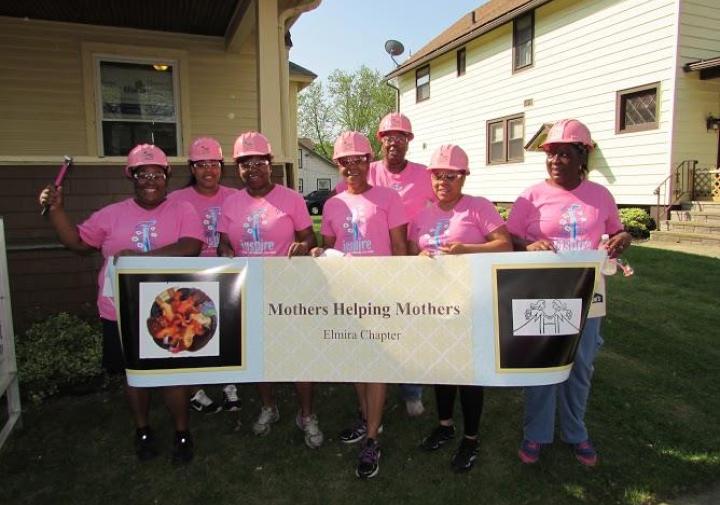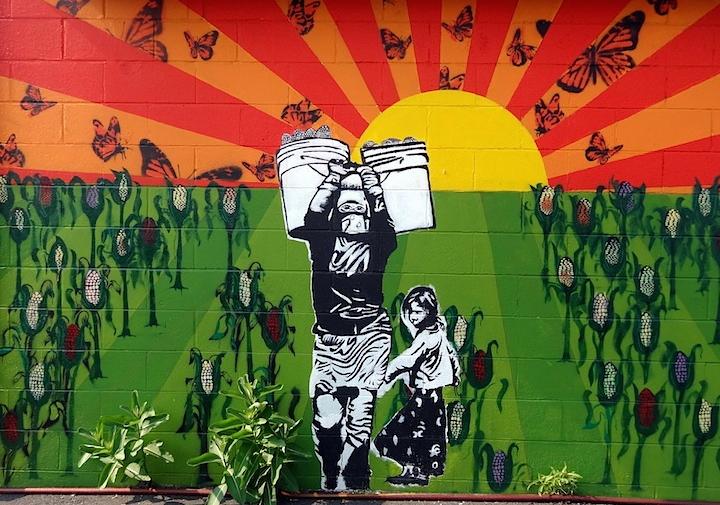Service-learning partnership showcases living examples of how change is happening here and now
A new book “13 Leaders: Stories of Community Building for Systemic Change” published by Cornell students honors the journeys and life’s work of 13 Cornell Civic Leader Fellows, who are grassroots leaders that have played critical roles in developing resilient communities in and around Ithaca. For the past five years, undergraduate students majoring in development sociology in the Department of Global Development documented the oral histories of local community leaders as part of their senior capstone course.
The service-learning engagement initiative involved 83 Cornell students in interviewing, transcribing and reflecting on the life stories of 13 Cornell Civic Leader Fellows — activists, farmers, educators, organizers, artists and mentors in Tompkins County, most of whom are Black, Indigenous, and People of Color (BIPOC). The Cornell Civic Leaders Fellowship Program, founded in 2001 by the Cornell Public Service Center and funded by John Alexander '74, MBA '76, and supported by other offices and departments. It was created to honor and support community leadership involved in economic and community development efforts in Tompkins County and surrounding counties. The program was the first of its kind designed to improve university-community collaborations.
A book launch event will take place on May 13 at 4:30 p.m. via Zoom wherein the Civic Leader Fellows and students will highlight their experiences.
The Cornell Civic Leader Fellows involved in the course have played central roles in supporting diverse communities, from farmers of color and immigrant youth to formerly incarcerated individuals and persons with drug dependence, and more. The course provided space for students to build relationships with local changemakers and absorb lessons acquired from years of dedicated work to their communities.
This book project serves as a model for what community engaged learning can look like — going beyond service and into a mutually beneficial partnership. “This is not your typical classroom,” said Maryam Zafar ‘21.
Civic Leader Fellows became co-educators and teachers for the students, imparting lessons on community organizing and wisdom that can only come from boots on the ground commitment to strengthening communities.



“Communities have been educating one another for a very long time,” said Phoebe Brown, Central New York Coordinator of the Alliance of Families for Justice and activist, mentor, organizer and community educator supporting the reentry of formerly incarcerated individuals.
“But this is the first time where we're really trying to share the stories and the leadership. What we’re trying to do in this book is show the stories of struggle.”
Amy Somchanhmavong, associate director of service-learning and partnership at Cornell Public Service Center who coordinates the Cornell Civic Leaders Fellowship Program, says the initiative was established to strengthen the university and community relations, support Civic Leader Fellows’ work in their respected communities, and, most importantly, recognize the Fellows as co-educators in the field of public and community engagement.
“Through this process, students, the Fellows, and myself learned the challenges of this work. We recognize the value of relationships, and that community engagement work is relational rather than be driven only by outputs and outcomes,” said Somchanhmavong.
Fabina Benites shared her story with the students about her work as a community organizer, cultural educator and youth advocate and director of the Multicultural Resource Center.
“This book highlights grassroots, collective leadership. It’s important for us to lift up the voices and leadership of people who are most impacted by whatever issue it is that they're working on,” Benites said.
The book exhibits the Cornell Civic Leader Fellows’ stories through oral histories, which entails the practice of first-person storytelling.
“The oral history process gives people a chance to tell their own story in their own voice, unfiltered in a way that preserves a truer and more complicated sense of people’s experiences,” said Scott Peters, professor of global development and faculty lead of the capstone project. “In doing so, Civic Leader Fellows have the opportunity to reflect on their lives and the value they have brought to the community.”
Josseth Gordon ‘21, who penned the book’s afterword, drawing on the reflections of all 83 students who have participated in the project, said that the most valuable takeaways have been the value of the lived experience, the vulnerability it takes to truly connect with communities and the deep investment it takes to work with grassroots movements.
“The stories of the fellows surreptitiously pose a challenge to us,” Gordon wrote in the afterword. “Battling xenophobia, racism, classism, gender issues, violence, disease, addiction, the streets, incarceration, and that unrelenting drive to do more, give more, and teach more, each story was an unfiltered testament of turning darkness into light with the fires of your passion.”
The senior capstone project provided many students with their first experience working deeply with Ithacan grassroots organizations. Many capstone students expressed an interest to be involved earlier in their academic career, wishing that they could have gotten involved when they first got to Ithaca, Peters said.
Younger students will soon have the chance to take part in this community-engaged work. Peters, along with Shorna Allred, associate professor in the departments of Natural Resources and Global Development, and Bruce Levitt, professor in the department of Performing and Media Arts, are adapting the Agents of Change: Community Organizing for the Public Good course to engage students in the local community their sophomore year, with the intention of building longer-term relationships.
The Cornell Civic Leader Fellowship Program and the 13 Leaders book are made possible by the support of John Alexander ’74, MBA ’76, the Office of Engagement Initiatives, the Office of University and Community Relations and members of the Kaplan family.
Hero image: Cornell Civic Leaders Fellow Phoebe Brown participates in a protest. Photo courtesy of 13 Leaders book.
Meet the Cornell Civic Fellows in “13 Leaders: Stories of Community Building for Systemic Change”

Rafael Aponte

Monica Arambulo

Jessica Belgrave

Fabina Benites

Khalil Bey

Damon Brangman

Phoebe Brown

Carolina Osorio Gil

Sabah Ahmed Hathaway

Jamila Walida Simon

Caleb Thomas

Cal Walker

Roberta Wallitt
Keep Exploring

News
- Department of Global Development
- Global Development

News
- School of Integrative Plant Science
- Plant Breeding and Genetics Section
- Global Development

We openly share valuable knowledge.
Sign up for more insights, discoveries and solutions.


